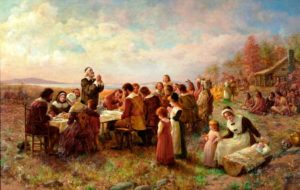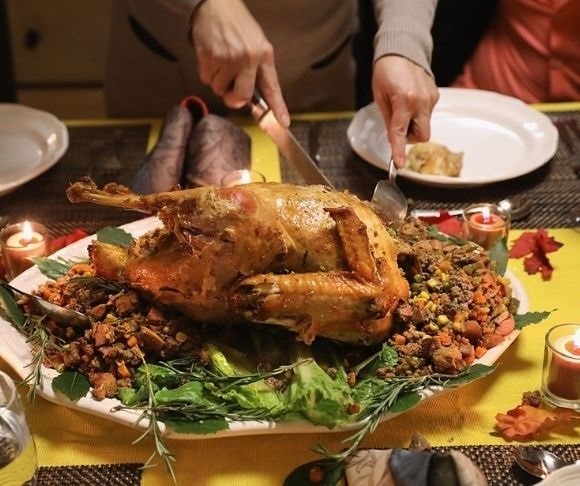Thanksgiving is a tradition that goes back centuries. By modern standards, the first thanksgivers were dirt poor; yet they could muster gratitude for things that most modern people take for granted, such as not starving or freezing. There may be lessons in wisdom to be harvested from understanding the stark contrast between now and then.
The Setting

(Photo by Fine Art Images/Heritage Images/Getty Images)
Consider what life was like when Thanksgiving first arose. The average life expectancy hovered between 30 and 40. One in seven children died before age one, and upward of half died before age 15. Life was not easy for those who survived. Consider tooth decay. It is painful, causing inflammation and heart disease, and the only remedy was pulling the rotting teeth out – without anesthesia.
If you broke a leg, you could be crippled for life, possibly living in chronic pain. If you were the breadwinner, your entire family might starve and suffer while your leg was healing. There were no antibiotics, so even trivial bacterial infections could turn fatal. If you survived pneumonia, you might still have permanently reduced lung capacity due to scar tissue in your lungs.
Electricity wasn’t an option. That meant women cooking food reduced their life expectancy by more than a decade from inhaling smoke indoors, not unlike the fate of hundreds of millions of women in third-world countries today. Without electricity, there were also no washing machines. Clothes had to be washed by hand. It is both time-consuming and laborious.
Life was no picnic for men either. They had to do hard physical labor in the fields or the woods for 10-12 hours every day. Even worse: If frost came early, or heavy rain or some crop disease ruined the harvest, those hours of hard labor were all for nothing. The reward for your hard work was starvation and possibly death.
Yet, despite these hardships and chronic disasters that modern people would call destitution, these folks had the moral fortitude to be grateful. Grateful for a successful harvest, not dying, not starving, only having lost three of the five children to disease, not perishing in the winter cold or war. Grateful for surviving to live another day.
The Contrast
Compare their lives to ours. We have electricity that allows us to cook food cleanly, light our houses in the evening so we can read books, and run our washing machines, refrigerators, and other appliances that make life easier.
We have antibiotics and near-magical medical treatments that have almost eradicated child mortality. People today live such good, secure, healthy lives that many get to die of old age.
But wait, there is more. We have bicycles, cars, trains, boats, and airplanes that can transport us efficiently around the globe in almost no time. We have the internet, computers, and mobile phones that allow us to order goods from the other side of the world at the click of a button and have them delivered to our door a few days later.
 We have opportunities for education, comfortable work, and leisure that the first thanksgivers did not even dream of. Yet, disturbingly, many people have the audacity not only to be ungrateful but to view America as the worst country ever to have existed on planet Earth.
We have opportunities for education, comfortable work, and leisure that the first thanksgivers did not even dream of. Yet, disturbingly, many people have the audacity not only to be ungrateful but to view America as the worst country ever to have existed on planet Earth.
They think America is so evil that it deserves to be annihilated. Worse, they do this while enjoying smartphones, antibiotics, electricity, airplanes, the internet, and other amenities they would never want to give up in a million years.
Hardship Teaches Gratitude
The lesson to draw from this is perhaps that gratitude does not come easy. It must be learned and earned. Those who experience true hardships in life are often able to see the world in perspective. Knowing that a good life cannot be taken for granted and that happiness and comfort can be robbed from you at any moment enables you to appreciate life whenever it shines benevolently upon you.
~ Read more from Caroline Adana.




